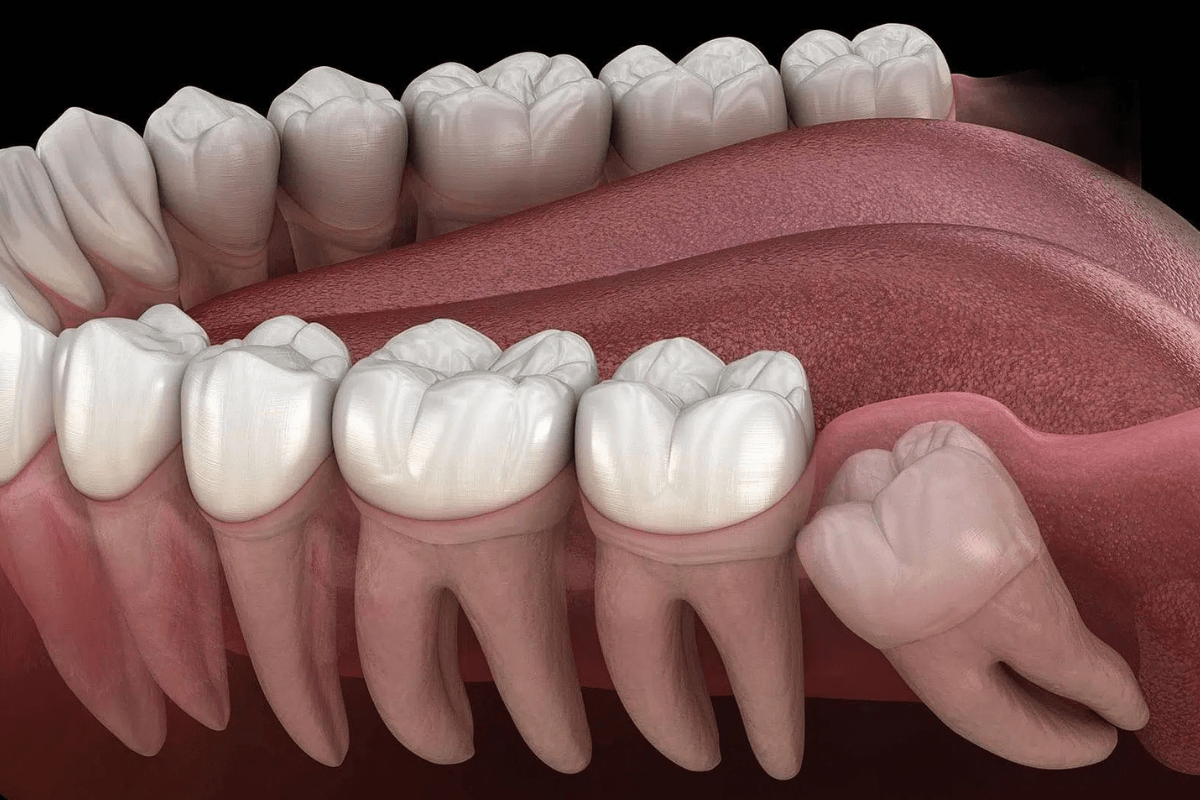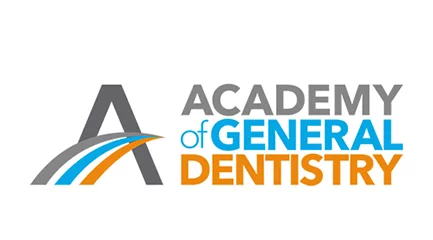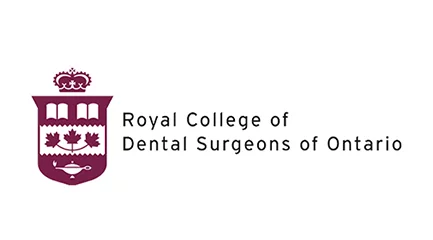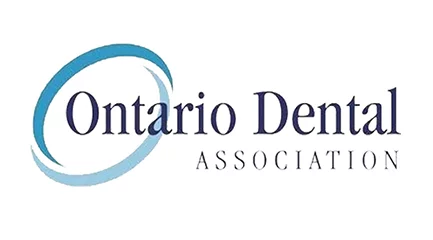The third molars, located at the back of the mouth, are wisdom teeth, the final adult teeth. Most people have four wisdom teeth, two on top and two on the bottom. Sometimes, wisdom teeth don’t have enough space to emerge correctly.
When this happens, they can become impacted, causing pain, damage to other teeth, and other dental issues. In some cases, wisdom teeth don’t cause problems. However, because they can be hard to clean, they may be more vulnerable to gum disease than the rest of your teeth.
Wisdom teeth that are impacted and cause discomfort or other dental issues often need to be removed. Some dentists and oral surgeons even recommend removing impacted wisdom teeth before they cause any problems as a preventive measure.
WHAT IS AN IMPACTED TOOTH?
An impacted tooth cannot break through the gum due to various reasons. Sometimes, a tooth may only be partially impacted, meaning it has started to emerge but not fully. Most of the time, impacted teeth have no symptoms and are discovered only through routine X-rays.
TYPES OF IMPACTED TEETH:
There are three types of impacted teeth:
- Soft Tissue Impaction: The tooth is positioned in the jawbone but does not break through the gums.
- Partial Bony Impaction: Some of the tooth emerges from the jawbone, but part remains covered by bone or gum tissue.
- Complete Bony Impaction: The tooth is encased in the jawbone and does not emerge through the gum.
SYMPTOMS OF IMPACTED WISDOM TEETH:
Wisdom teeth that are impacted may not show any symptoms. However, if an impacted tooth becomes infected or damaged surrounding teeth, you may experience the following:
- Red or swollen gums
- Tender or bleeding gums
- Jaw pain or swelling
- Bad breath or a bitter taste in the mouth
- Difficulty opening your mouth fully
CAUSES OF IMPACTED TEETH:
An impacted tooth usually occurs because the mouth doesn’t have enough space to accommodate it. This may be due to genetic factors or previous orthodontic treatment.
WHICH TEETH ARE MOST LIKELY TO BE IMPACTED?
Wisdom teeth are the most commonly impacted, as they are the last to emerge, usually between the ages of 17 and 21. By this time, the jaw may have stopped growing, making it difficult for wisdom teeth to fit. If you have a smaller jaw, you are more likely to experience impacted wisdom teeth.
The second most frequently impacted teeth are the maxillary canines (upper or cuspid eyeteeth). Because these teeth play a significant role in the mouth, dentists usually try to help them emerge rather than remove them.
POSSIBLE COMPLICATIONS OF IMPACTED WISDOM TEETH:
Impacted wisdom teeth can cause several problems, including:
- Dental Damage: An impacted wisdom tooth can press against the second molar, potentially damaging it or causing an infection in the area. The pressure can also lead to misaligning other teeth, possibly requiring orthodontic treatment.
- Cysts: Wisdom teeth can develop sacs filled with fluid inside the jawbone, forming cysts that damage the jawbone, nerves, or teeth. Though rare, a benign tumor may form in this area, and the bone or tissue may need removal.
- Tooth Decay: Partially impacted wisdom teeth are more prone to cavities due to their difficult-to-reach position, where food particles and bacteria can get trapped.
- Gum Disease: Impacted wisdom teeth are harder to clean, increasing the risk of gum diseases like pericoronitis, a painful condition that causes inflammation around the gum.
DIAGNOSIS OF IMPACTED TEETH:
To diagnose an impacted tooth, your dentist will examine your gums and teeth, looking for signs of swelling or other issues. They may take X-rays to examine the area beneath your gums, including your jawbone and tooth roots. This will help your dentist determine if an impacted tooth is causing your symptoms.
TREATMENT FOR IMPACTED TEETH:
HOW CAN IMPACTED TEETH BE TREATED?
If you suspect that you have an affected tooth, consult your dentist as quickly as possible. They can examine your teeth and take an X-ray of your mouth to identify whether an impacted tooth is causing your discomfort. If so, they will discuss the advantages and disadvantages of treatment.
MONITORING AND WAITING:
If the tooth you’re impacted does not cause problems, the dentist might suggest a wait-and-see approach. This method is a better option than taking out the tooth surgically. The dentist will check it and be able to see if any issues arise. This is simple when you visit for regular dental exams.
SURGERY:
If you suffer from pain or uncomfortable side effects from an affected tooth, your dental professional might suggest an extraction procedure, especially for impacted wisdom teeth. The dentist may also suggest extraction in cases where the affected tooth hurts the teeth around it.
Tooth extractions are usually performed by an in-patient in an oral surgeon’s office, which means you can return home the same day you undergo the procedure. The procedure generally takes 45-60 minutes, and you’ll most likely be placed in local anesthesia. Recovery can take between 7 and 10 days, but you can return to school or work within a few days after getting the procedure.
ERUPTION HELPS:
If the canine teeth are damaged, eruption aids can help them erupt properly. Eruption aids could comprise brackets, braces, or removing adult or baby teeth blocking the canines. These techniques are most effective for children. If the tooth can’t erupt, the affected tooth must be removed and replaced by an implant or bridge.
MANAGING PAIN FROM IMPACTED TEETH:
If you’re experiencing pain from an impacted tooth, over-the-counter pain relievers like aspirin, acetaminophen (Tylenol), or ibuprofen (Advil) may provide temporary relief. However, aspirin should not be used in children under 18 due to the risk of Reye’s Syndrome.
Ice packs can help reduce swelling, and rinsing with warm salt water may ease discomfort. If pain is severe or persistent, consult your dentist for additional treatment.
OUTLOOK FOR IMPACTED TEETH:
With proper treatment, impacted teeth generally do not cause long-term issues. Most people can recover without lasting complications if the tooth is removed or treated effectively.
LIVING WITH IMPACTED TEETH:
If an impacted tooth causes discomfort or other symptoms, it will not heal independently. It would help if you visited your dentist for treatment recommendations. In the meantime, you can alleviate some discomfort with the following at-home remedies:
- Rinse your mouth with warm saltwater.
- Apply ice packs to the outside of your jaw.
- Use benzocaine gel on your gums.
- Take over-the-counter pain relievers like Tylenol, Advil, or Aleve.
WHEN TO SEE YOUR DENTIST:
It’s important to visit your dentist regularly for check-ups, typically every six months. If you experience new or worsening symptoms, make an appointment as soon as possible. Your dentist will evaluate your condition and suggest appropriate treatment options.
By following these guidelines, you can manage the discomfort from impacted wisdom teeth and prevent further complications.











